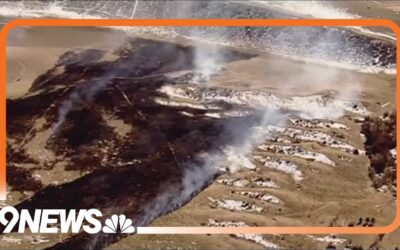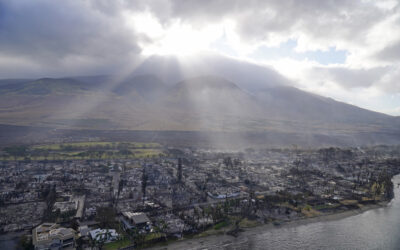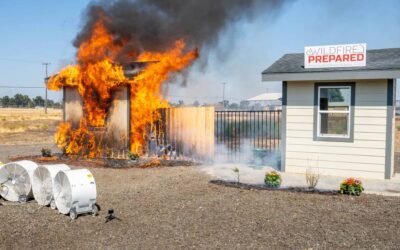Back in 2002, I was a new Operations Chief on a type 2 Incident Management Team (IMT). I had been free lancing for years as a Division Supervisor. I had enjoyed being a freelancer. I got to meet new people on every assignment. I was dispatched when I wanted to be and stayed back on the District when necessary. Being a freelancer fit my needs to travel out of region when the local teams were sitting idle at home and yet I could stay home when my District Ranger was fretting about me being gone.
As soon as I was a qualified OSC2, one of the local ICs immediately approached me about being on his team. I already had a reputation as a good firefighter and Fire Management Officer so he jumped at the chance to get another solid Operations Chief. I can’t help but think that having a female Operations Chief on his team was also a feather in his cap. But that’s just conjecture on my part.
At the pre-season IMT meeting, I met the rest of the team. The safety officer was a crusty old Vietnam vet who wasn’t too happy about having a female Operations Chief on the team. Growing up he had been infused with the value that men went to war to protect the women. And in his mind, fighting fire was akin to combat. He was quite clear on this issue but like I knew he would, he eventually came around to having a competent female Operations Chief on the team.
The other Operations Chief had been on the team for many years. He was a big friendly man and a good Operations Chief. The entire team loved and respected him. But I could tell he was unsure about me when we first met. He didn’t say a lot but I could see him eyeing me not sure who this new partner of his was. It was clear he was cautious about me. And I don’t blame him. He didn’t know me from Adam. Right after we met, I told him not to expect me to take the Planning Operations role all the time. I would take my turn being in camp as Planning Operations but I expected to rotate into the Field Operations position just as much as he or the other OSC2 who filled in on the team.
I guess I was being a bit more direct than he was used to. He just stared back at me while I told him how it was going to be. But in 2002, I wasn’t going to put up with any misogynistic good old boy behavior on a team I was a part of. And I surely was not going to play second fiddle. Looking back on it, I was kind of a bitch. But that’s how a good female Operations Chief has to be. In 2002, I already had 28 years’ experience being treated poorly by the good old boys. You could say I had a giant chip on my shoulder. I was a good firefighter. I knew it and anyone who fought fires with me knew it too. I wouldn’t play second fiddle to my fellow Operations Chief.
Looking back on that initial meeting with the guy who would go on to be one of my best work friends ever, makes me laugh and maybe cringe a bit too. Years later he’d laugh and in his big booming voice tell others, “yeah she came in with guns blazing and told me how it was going to be and put me in my place”. When I would hear him laughingly tell that story, I both cringed and felt some pride.
On our first assignment working together, he took the Planning Operations job in camp and let me take my turn as Field Operations. I think it was really an opportunity for him to sit back and observe me. It wasn’t a complex fire but it was a large one and we didn’t have a lot of resources so we just tried to anchor and flank. Finally, I came up with a plan to conduct a huge burn out in order to minimize the miles of fireline necessary. He and the IC were a little skeptical about my plan so they came out to watch on the day of the big burn out. The burn out went according to plan and in their eyes, I had earned my stripes. I was one of them.
The Division Supervisors were an easier win. It was clear to them that I knew my business. Having been an active Division Supervisor for 12 years before becoming an Operations Chief, I didn’t have to pretend to know my job. I was tough and decisive but with a quick smile. The Division Supervisors followed easily.
The next year and several fire assignments later, our IMT had just wrapped up a fire assignment in Wyoming. It was a good assignment. The local fire organization had been whipped by the fire and when our IMT arrived, we assumed responsibility with a humble professionalism common with many IMTs. And we put out their fires. The saying from the movie Ghostbusters came to mind… “We came, we saw, we kicked it’s ass”! We all thought we were a bad ass Operations section. And in reality we were pretty good.
We had flown to the fire on government aircraft, but now in the middle of tourist season, we were waiting for commercial flights home. As we sat in the airport bar waiting for an announcement for a possible flight, we knew it was more likely we’d be spending another night in a nearby motel.
For the moment we were feeling full of ourselves and reliving all our past glories. The Division Supervisors, the other Operations Chief and I sat around the airport bar telling stories and laughing. It was a great team building experience. Our Esprit de Corps was high and I felt like the men sitting around the bar table were truly my brothers. Life was good.
Finally one of the Division Supervisors asked the senior Operations Chief how he liked living in the big city since he had recently moved to the Forest Service Regional Office. Previously my friend the Operations Chief had been living and working in small towns typical of Ranger Stations and out of the way forest offices. In his booming voice, my Operations Chief friend said with his country twang, “well boys, the big city can be pretty weird. Just the other day I saw one of them “he-she’s” walking around”. He went on to laughingly describe how “this he-she was just walking around showing off her new boobs”. Everyone laughed and my friend just smiled.
I was shocked, not knowing what to say. What should I do? Should I speak up? Should I use this moment as a teaching opportunity? Would it ruin the friendship and brotherhood that we had all built over the last few years if I spoke up about his inappropriate comment? I kept silent. Finally I did speak up and said, “well you never know what’s going on in people’s lives”. That’s all I said. It felt like a pretty lame response considering what had been said.
The moment passed and I never said anything else. Our friendships continued and our mutual professional respect only grew deeper with the Division Supervisors and my fellow Operations Chief.
Around the same time back at my home Forest, I had the opportunity to witness a conversation that still stands out in my mind. My Forest Fire Staff and another member of the Forest Leadership Team were in a conversation while I was standing nearby with some other fire employees. I wasn’t paying any attention to the conversation going on in my circle of peers. Instead, I was listening to the conversation going on nearby between my Fire Staff and the other Forest leader.
Their conversation was about diversity in our organization and it went kind of like this… “You know, you probably have gay and lesbian employees in your fire organization”, the one leader said. “No way, absolutely not. There are no gays or lesbians or whatever in my fire organization. If there were, I’d know it”. The other Forest leader did know it. She knew it and now the fire staff was informed. He must have thought that firefighters who were LGBT had horns sticking out of their foreheads. He was adamant that absolutely, there were no LGBT employees in his organization.
But I’m a trans woman myself. I had transitioned about five or six years before. I never mentioned that critical piece of information to any of my co-workers. It was not a topic that just comes up. I didn’t know how many people knew my history. And why should they? Would it matter? Should it matter? Was it even any of their business?
This man who was so sure that there were no LGBT firefighters working for him was one of my biggest supporters. He gave me whatever was necessary for me to be successful when they brought me in to be one of the District FMO/Divisions. If I needed additional personnel, increased budget, RX support, back-up to remove unproductive personnel… he was there for me. To this day, I consider him a friend. But back then he was so positive that he’d know if there was an LGBT firefighter on the Forest. And what difference did it really make? Who should really care?
But I cared. It made a difference to me. Here I was, a respected capable and proven fire leader on my Forest. But the Fire Staff made me want to keep my head down and hide. I was worried about what he might think and how he might change his attitude toward me if he learned of my history.
Someone else might have been intimidated or scared. But I was too full of myself and confident in my abilities as a firefighter and leader to back down, but I was definitely affected. I had to always be on alert and if I had thought about being more honest and open about my past and who I was, his comments made me tighten the rope on that information.
It really doesn’t matter whether we’re talking about race, ethnicity or gender. It does no good to make adverse comments about the very diversity we should be striving to include. Think about the tax dollars we spend in order to provide a service to the public. How do the negative comments and behaviors impact upon our efficiency and effectiveness as an organization? It doesn’t matter if you’re working for a municipality, a state or the feds. Casual or not so casual comments have a negative impact on the organization. A leader making a derogatory comment whether in jest or seriously will have a detrimental impact on their organization. Guaranteed. It doesn’t matter if there are no trans crew members, or black crew members, or women crew members. Those comments validate the opinions and encourage the very behavior we’re trying to stop. We need to avoid those behaviors because they negatively affect crew inter-actions.
Over my 45-year fire service career, I’ve watched many firefighters be run off of crews and agencies by overt bullying, discrimination, and other more subtle comments and influences. When we lose firefighters due to bullying and discrimination, they take with them the years of experience and the tens of thousands of dollars invested in their training. From a strictly financial standpoint, it’s incredibly wasteful. It also inhibits other diverse candidates from applying for jobs. It’s an embarrassing disease in the fire service.
You’ve probably heard the saying, “That which we permit, we promote”. Think about it. If we allow subtle or not so subtle derogatory and negative comments and behaviors, we’re promoting that behavior. As leaders, and we’re ALL leaders, it is our responsibility to speak up. Speak up like I was too afraid to. Make a difference for the good of your crew, the organization and the public we serve. Be a real leader.
More stories are available at BobbieOnFire.com and my entire memoir, Both Sides Of The Fire Line is available from Chicago Review Press or any bookstore.
Now Available
Both Sides of the Fire Line is Bobbie Scopa’s uplifting memoir of bravely facing the heat of fierce challenges, professionally and personally. It’s available for preorder now.
Order from Amazon Order from Barnes & Noble
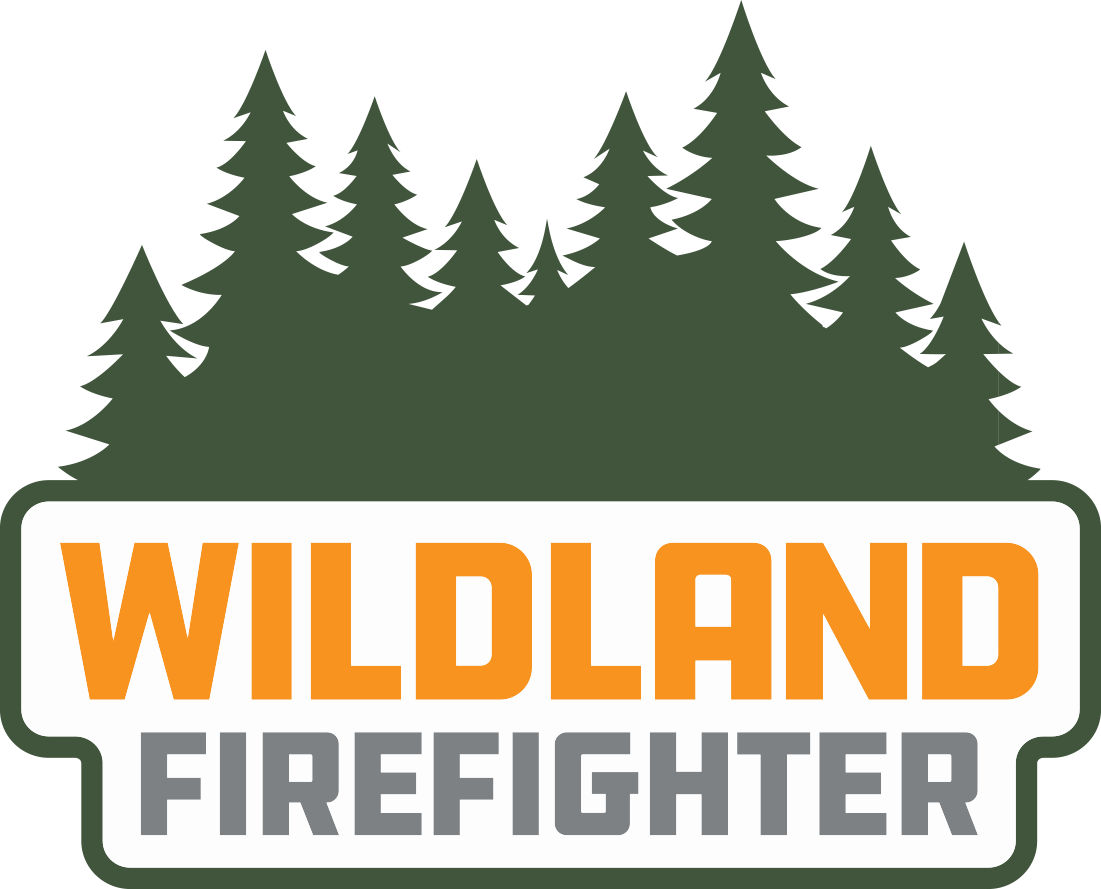
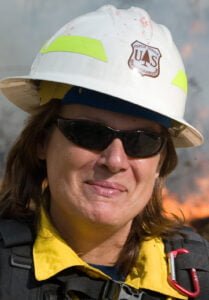 Bobbie Scopa started her career as a seasonal firefighter in 1974. After graduating from Arizona State University, she went on to work in fire and natural resource management. Eventually she left the wildand agencies to work full time for a structure fire department. She finished her Masters in Forestry at NC State then went back to the US Forest Service and BLM eventually becoming the Assistant Regional Fire Director in Region 6. Bobbie has spent many years working as a type 1 and 2 Operations Section Chief. You can listen to Bobbie tell audio stories from her long career at BobbieOnFire.com. She has also recently completed her memoir titled “Both Sides Of The Fire Line”. It will be available through Chicago Review Press late summer of 2022.
Bobbie Scopa started her career as a seasonal firefighter in 1974. After graduating from Arizona State University, she went on to work in fire and natural resource management. Eventually she left the wildand agencies to work full time for a structure fire department. She finished her Masters in Forestry at NC State then went back to the US Forest Service and BLM eventually becoming the Assistant Regional Fire Director in Region 6. Bobbie has spent many years working as a type 1 and 2 Operations Section Chief. You can listen to Bobbie tell audio stories from her long career at BobbieOnFire.com. She has also recently completed her memoir titled “Both Sides Of The Fire Line”. It will be available through Chicago Review Press late summer of 2022.